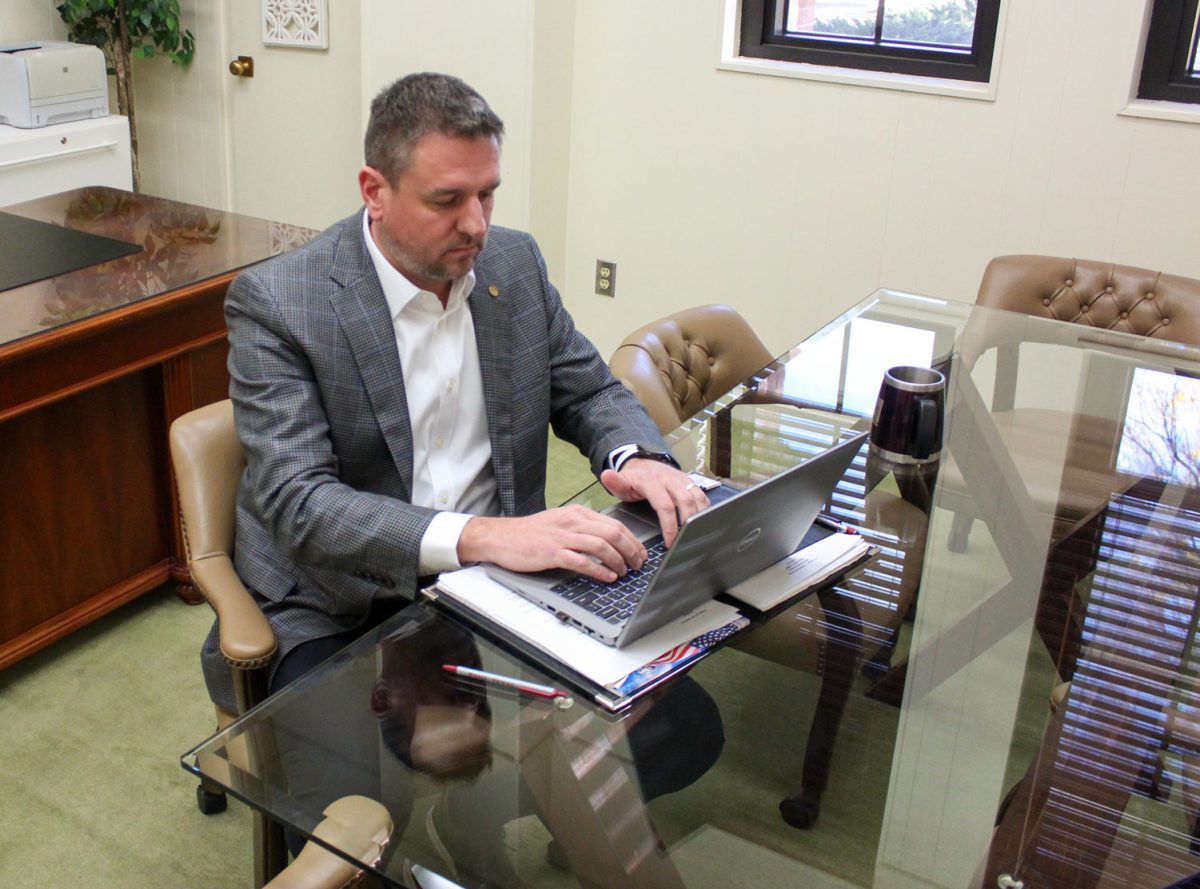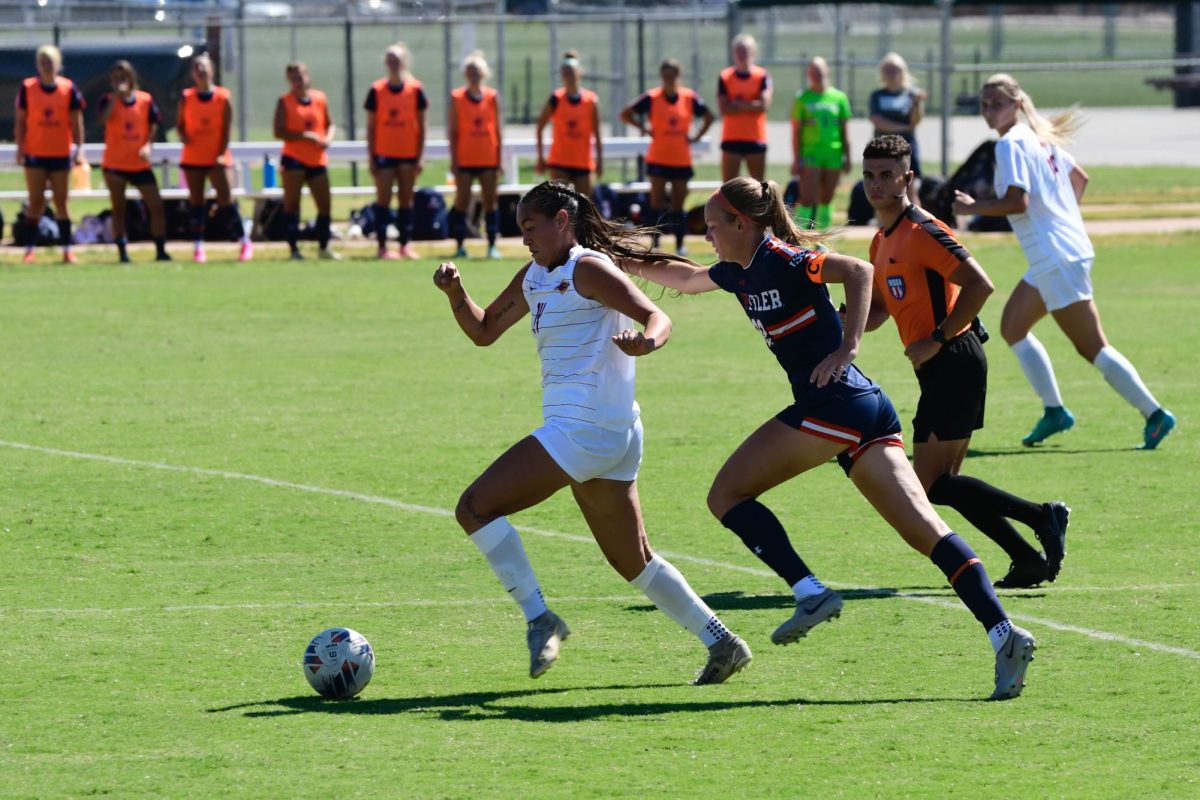With literally hundreds of outlets — from Twitter to Facebook to YouTube to Instagram college students and officials have found social media as a new way to broadcast, advertise and connect.
However, last fall, some students took to social media, specifically Yeti — a way to share photos and videos anonymously — in a form of abuse.
“The Yeti post looked very bad towards the university. Anyone can see that and it only takes one person to jeopardize to reputation of a group,” said Katelynn Esterer, accounting junior.
The post contained a picture on campus with anti-homosexual slander towards a student government officer included in the photograph. Julie Gaynor, public information officer released a statement from the university expressing its values and stance on bullying.
Esterer said, “I am glad the page was taken down. It was a fun idea but some people are too immature to handle anonymity.”
Regardless of the Yeti fiasco, social media does have a strong positive role toward campus. The majority of campus organizations have social media accounts ranging from Facebook profiles to YouTube channels.
The university’s organizations collectively come out to 67 Facebook profiles, 48 Twitter pages, three YouTube channels, 24 Instagram accounts, and one Vimeo page. The University also has its own profile on LinkedIn, Pinterest, Google+ and Snapchat.
THE GRADUATE SCHOOL
The Billie Doris McAda Graduate School has the most outreach online, having profiles on Facebook, Twitter, YouTube and Instagram.
“Focusing on social media really helps make our presence known. Many students enrolled don’t even know about the graduate school so we try and get out there as much as we can,” said Amanda Walton, graduate school coordinator.
Having only four people in the office, Walton is in charge of all the social media accounts associated with the graduate school.
“I try and post as much as I can about scholarships, events and relevant information for undergraduate and post-grad students. Re-posting and responding to other organizations and students is also very important. It unifies the campus and lets us broadcast the events along with other organizations,” said Walton.
The graduate school also posts profiles of graduated students inside the program on its YouTube page talking about their experiences getting jobs, internships, and the graduate program itself for relating students.
ATHLETICS
Social media can also be a way to inform the public of sports games and scores without individuals having to go the event. “The athletic department will send an email blast of highlights, game day graphics, links to video streams, and live stats of games for different accounts to post,” said Trey Reed, Assistant Athletic Director.
The live streams and statistics are a way for the students and alumni to keep in touch and follow up with the university’s standings.
“To promote we usually reach out at least four times. First we will post background information of the event a few days before a game, then three to five hours before a game to advertise the event one last time. Then we will have a quick release of a games score directly afterwards until a full recap can be written and posted,” said Reed.
The athletic department keeps its different social media accounts updated so that there can be a constant flow of advertisement of the events for the public, leading to better crowd numbers and a higher school spirit throughout the students and alumni.
OTHER ORGANIZATIONS
Social organizations on campus are very involved on social media pages, doing more than just advertising to the public.
“I feel as if Greek life has its own presence online. Not only can we post about upcoming events, but we can also joke around with our members and members of other fraternities and sororities on Twitter. It’s also a great way to keep in touch with alumni and other students on campus,” said Nate Osmond, business management junior.
Social media outlets have a number of uses and applications but heavily rely on the main objective of just being social.
“We are able to get to know people better by just looking through pictures on their Facebook page or responding to tweets on Twitter. It’s mainly all in good fun but there will always be a few users out there to be malicious and get a rise out of you,” said Osmond
What is posted online is open to the public to see, regardless of a private setting on an account. There are a number of services that can be used by hiring managers, people with the intent of finding information and in extreme cases, the police.
“I have seen a variety of people on Twitter and Facebook posting pictures and statuses including illegal activities that could potentially lose them a chance at a job they have their hopes on. A lot of people don’t realize that what goes on the internet stays on the internet in some way, even if deleted,” said Osmond.
The university connection through social media gives the students and public an opportunity to publicly speak out and comment on the upcoming events, giving everyone a chance to share their opinions good or bad.












